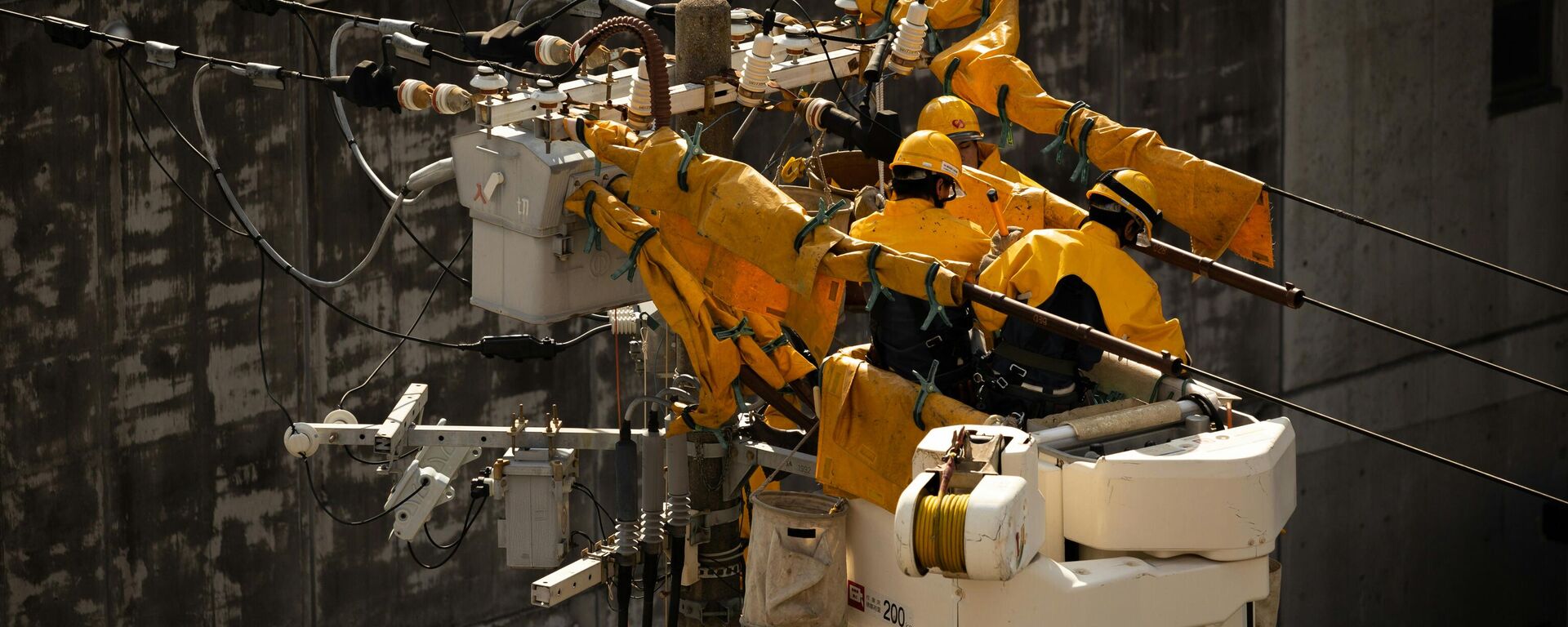https://en.sputniknews.africa/20250325/botswana-considers-new-615-mw-coal-plant-to-avert-power-crisis-1071266758.html
Botswana Considers New 615 MW Coal Plant to Avert Power Crisis
Botswana Considers New 615 MW Coal Plant to Avert Power Crisis
Sputnik Africa
Morupule B, a 600-megawatt coal-fired plant, has struggled with operational issues since its completion in 2012 and is currently undergoing maintenance. With... 25.03.2025, Sputnik Africa
2025-03-25T17:35+0100
2025-03-25T17:35+0100
2025-03-25T17:35+0100
sub-saharan africa
botswana
electricity
southern africa
energy crisis
energy
coal-fired power plant
https://cdn1.img.sputniknews.africa/img/07e9/03/19/1071267077_0:0:2531:1424_1920x0_80_0_0_6cdb762d834a1f627469638218f941bc.jpg
Botswana is exploring the construction of a new 615-megawatt coal-fired power plant to address persistent electricity generation challenges and ensure a stable energy supply, Energy Minister Bogolo Kenewendo told the National Assembly on Monday.The project is being considered as an alternative if ongoing remedial efforts at the existing Morupule B power station fail to meet expectations.As part of broader efforts to enhance energy security, Botswana has also begun developing a separate 600-megawatt coal-fired power plant in Mmamabula, which is expected to be operational by 2027. The government remains engaged in discussions with potential proprietors for the proposed 615-megawatt facility, aiming for implementation within the next 18 to 24 months, the minister revealed.
https://en.sputniknews.africa/20250322/russia-ready-to-assist-africa-in-overcoming-energy-poverty-1071216533.html
botswana
southern africa
Sputnik Africa
feedback@sputniknews.com
+74956456601
MIA „Rossiya Segodnya“
2025
Christina Glazkova
https://cdn1.img.sputniknews.africa/img/07e7/0b/07/1063380906_0:0:673:674_100x100_80_0_0_79628b4d0cd9f29291a57aa13bbf9e7a.jpg
Christina Glazkova
https://cdn1.img.sputniknews.africa/img/07e7/0b/07/1063380906_0:0:673:674_100x100_80_0_0_79628b4d0cd9f29291a57aa13bbf9e7a.jpg
News
en_EN
Sputnik Africa
feedback@sputniknews.com
+74956456601
MIA „Rossiya Segodnya“
Sputnik Africa
feedback@sputniknews.com
+74956456601
MIA „Rossiya Segodnya“
Christina Glazkova
https://cdn1.img.sputniknews.africa/img/07e7/0b/07/1063380906_0:0:673:674_100x100_80_0_0_79628b4d0cd9f29291a57aa13bbf9e7a.jpg
botswana, electricity, southern africa, energy crisis, energy, coal-fired power plant
botswana, electricity, southern africa, energy crisis, energy, coal-fired power plant
Botswana Considers New 615 MW Coal Plant to Avert Power Crisis
Christina Glazkova
Writer / Editor
Morupule B, a 600-megawatt coal-fired plant, has struggled with operational issues since its completion in 2012 and is currently undergoing maintenance. With Botswana’s electricity consumption growing at approximately 5% per year and projected to reach 7,000 gigawatt hours by 2040, the government is weighing new options to stabilize supply.
Botswana is exploring the construction of a new 615-megawatt coal-fired power plant to address persistent electricity generation challenges and ensure a stable
energy supply, Energy Minister Bogolo Kenewendo told the National Assembly on Monday.
The project is being considered as an alternative if ongoing remedial efforts at the existing Morupule B power station fail to meet expectations.
“The country's current electricity consumption is approximately 4,800 gigawatt hours per annum, with a peak demand of 680 megawatts and a base load of 400 megawatts,” Kenewendo said. “Currently, about 65% of our electricity demand is met through local generation, even though this has been quite unstable.”
As part of broader efforts to enhance energy security,
Botswana has also begun developing a separate 600-megawatt coal-fired power plant in Mmamabula, which is expected to be operational by 2027. The government remains engaged in discussions with potential proprietors for the proposed 615-megawatt facility, aiming for implementation within the next 18 to 24 months, the minister revealed.



